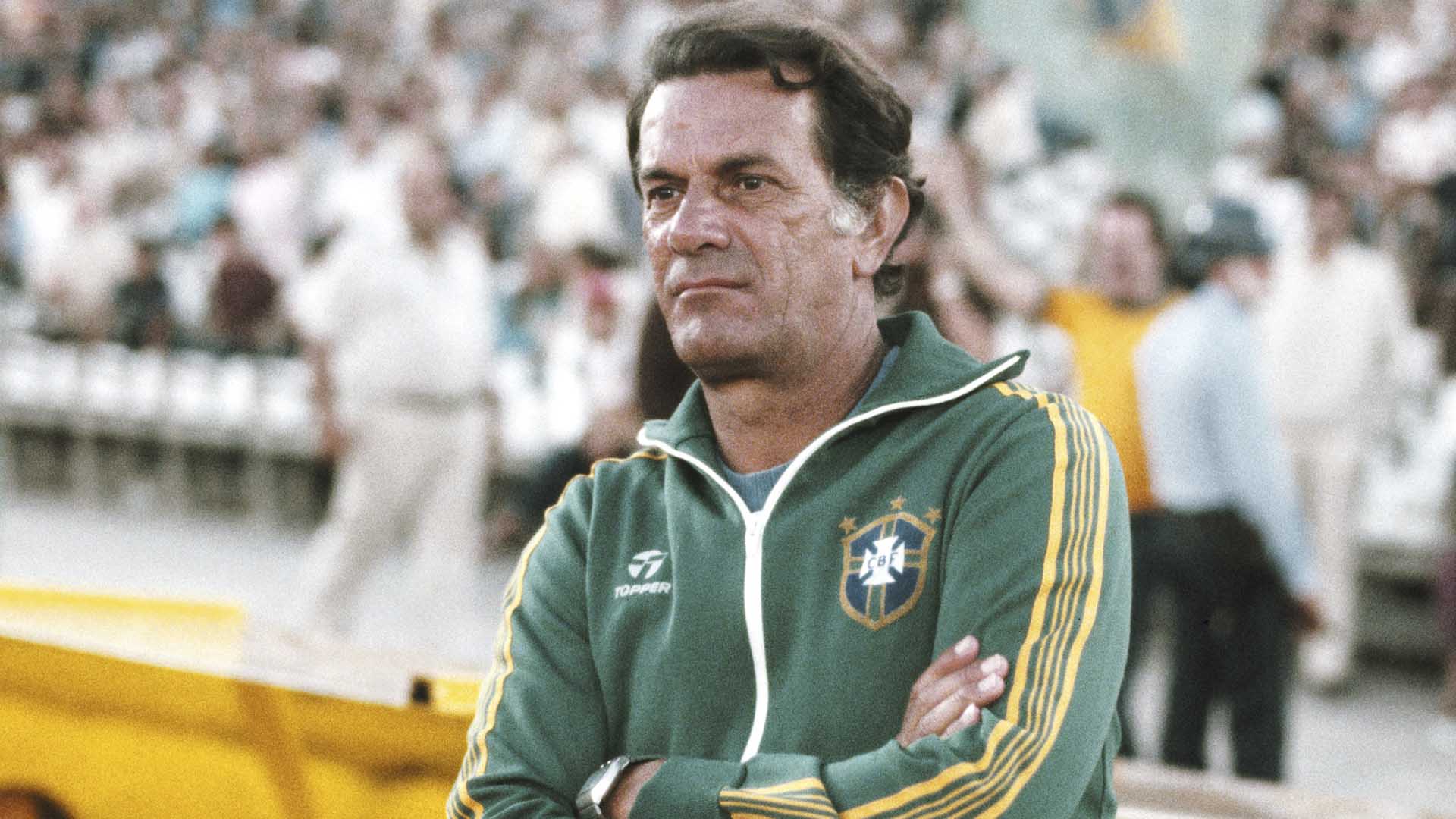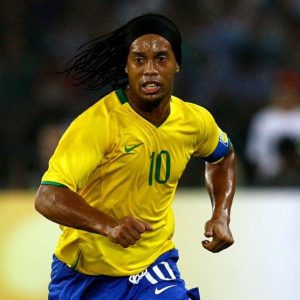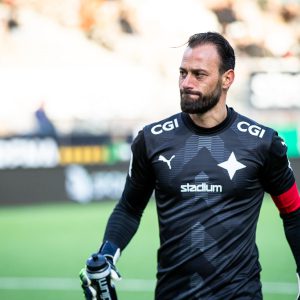

The past, present and future of Brazilian coaches
Photo credits: Esportelândia
Brazil was always known for exporting football talent around the world. But while Brazil had many players shining in many leagues around the world, the coaches were not so well regarded. Right now, the main coaches in the country are foreigners. Certainly, the reasons are multifactorial, but some are at the core of everything.
The country had many good coaches, names as Vicente Feola, Rubens Minelli, Oswaldo Brandão, and Telê Santana – probably the biggest of them – while not so famous outside Brazil, they were very successful, producing many good teams and creating concepts that reflected a period of Brazilian’s football dominance.
Other names have also different degrees of success outside Brazil, like Otto Gloria in Portugal, Ricardo Gomes in PSG (1996-98) and Bordeaux (2005-2007/2018-19), Leonardo in Milan (2009-2010) and Inter (2010-2011), Vanderlei Luxemburgo in Real Madrid (2004-2005), who left the country very well regarded and managed Madrid during the Galácticos Era and left as a legacy a sandbox in Valdebebas, that is very representative for reasons that will be disclosed in the next lines; and finally, probably the most successful Luis Felipe Scolari aka Felipão, finalist of Euro 2004 and 4th place with Portugal in 2006 World Cup and Chelsea (2008-2009).
This shows us that Brazilian coaches were good and successful even outside the country and today don’t have space in the local clubs, with names like Abel Ferreira, Jorge Jesus, Jorge Sampaoli, and many other foreign coaches in Campeonato Brasileiro. At the moment that this text is written, 8 of 20 coaches from Brazilian Série A are foreigners. Tite already announced he is leaving the National Team and the Portuguese Jorge Jesus appears to be the favorite to be the new coach, after Guardiola’s refusal. But what are the reasons behind that?
One of the main reasons is illustrated with Luxemburgo’s sandbox in Valdebebas. Based on the notion that Brazil had the best football in the world, 5 times champions, the status quo inside the country was: we don’t have to study, we are the teachers. While smaller countries started to study football using science to compensate for their deficiencies, Brazil slept on its success and kept doing the same training and tactical theories from the 90-beginning to the 2000s. “We don’t need to learn anything, we are the 5-time champions”.
But then, frequently, games like the Germany 7×1 Brazil 2014 World Cup semifinal, Barcelona 4×0 Santos Club World Cup final started to happen. In Brazil, the biggest goal, the biggest tournament for a team, is the Club World Cup and since 2001 with Palmeiras x Manchester United, no other team was able to play against Europeans or defend 90% of the time or being massacred. Everyone inside the country started to wonder what happened with the five-time world champions.
One of the conclusions was that our coaches are outdated. While this is too simple for a complex problem, it is part of the reason. Then, Brazilian coaches started coming to Europe to watch training sessions from Guardiola, Klopp, Mourinho, and many others. They took a picture with those famous coaches, published on all social networks, but were unable to explain the whys behind those training sessions and ideas, and didn’t even have the desire to ask. The important was the photo to show the fans that they are not outdated, even though they kept doing the same thing they did as players in the 80s and 90s.
Another characteristic is to put the blame on something else, with the most famous being “we don’t have to think or train, just play”. After the poor results, they started this time doing the same things that happen in Europe, but without understanding, without intentionality, doing it because they saw a video of Guardiola doing it. Doing even antagonistic sessions in the same training session, because they saw the video of great coaches doing it.
Then, the big local teams like Flamengo and Palmeiras started to bring European coaches and dominated the local football. The Brazilian coaches reacted defensively again, saying they did the same thing as those European coaches. But this time was too late and the Argentinians and Europeans dominated the local scenario.
Those Argentinian and Europeans have studied. Developed their own schools. They used science and technology in their favor. But CBF has its own course, which is a requirement to have the license to train in Brazil. And here lies some other problems. According to people who were a student there, the quality of the course is very low in comparison with the rest of the world, with the teachers saying truisms. The price of those courses is also another problem, being economically impossible for the football enthusiast to try a career. It’s not uncommon for employees from big clubs going to Argentina to have the same classes that are offered by CBF, but with better quality.
Finally but not least, it’s common in Brazil, after 3 consecutive losses, the coach is fired. That is a cultural thing in Brazil, the culture of immediacy. This is fed by the sense in Brazil that we have many big teams. Instead of the English top 6, the Italian top 3, or the double in Spain, Brazilians like to think that Palmeiras, São Paulo, Santos, Corinthians, Flamengo, Vasco, Botafogo, Fluminense, Inter, Grêmio, Atlético Mineiro and Cruzeiro are all big teams and all of them must be champion. Since Brazil is the five-time world champion, according to the local belief, they have the most amount of big teams. Many of them are not relevant for many years, but this is another truth that once shown to the locals, will be like the 7×1, like Dorian Gray looking at the mirror. This is also sustained by the fact that in addition to the continental tournament, the country league, and cup, Brazil also has state and sometimes even regional tournaments. Instead of 3 chances to be champion in the year, they have 5, which makes for the fans almost an obligation to win silverware every year.
Brazilians are still very good and relevant for football, as their coaches can once again be, once they face the truth, stop giving excuses and associate knowledge, science, and technology with the local talent.
Leave A Reply Cancel reply
You must be logged in to post a comment.
Categories
Latest Courses
-
9 Lessons
-
1 Lesson
-
6 Lessons
You May Also Like
- Blog
- August 1, 2022
- Blog
- June 3, 2022
- Blog
- May 27, 2022
Developed by Brandit Digital Media Services.






3 Comments
Não sei se são os técnicos brasileiros que não estão à altura do outros estrangeiros…!!!
Creio que a qualidade dos jogadores influência, e muito, o desenrolar dos resultados em campo…!!! Os melhores jogadores são exportados, apesar de que temos ainda uma gama enorme de grandes atletas ainda jogando em nosso país…!!!
Os selecionados por Tite são, na sua maioria, jogadores que atuam fora do nosso País…!!!
Isto talvez justifique um pouco este conceito…!!!
Muito lúcida a análise.
Inclusive, gostaria de ver a treinadora da Seleção Feminina, treinando nossa Seleção Masculina.
Análise perfeita. A soberba precede a queda. A cultura de não aprender e não valorizar o conhecimento atinge quase tudo por aqui. O futebol retrata o triste quadro de um país adormecido.